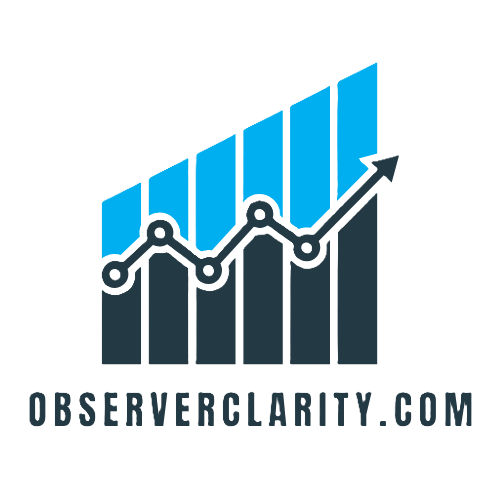In a world where self-improvement trends pop up faster than cat videos, personal development tools have become the trusty sidekicks everyone needs. Whether it’s a shiny new app or a classic journal, these tools promise to transform the mundane into the magnificent. They’re like the Swiss Army knives of self-help—versatile, handy, and occasionally confusing.
Imagine leveling up your life with just a few clicks or scribbles. From goal-setting apps that track your progress like a hawk to mindfulness techniques that help you find your zen amidst the chaos, personal development tools are here to help. So why not grab your metaphorical cape and dive into the treasure trove of resources that can turn your aspirations into reality? After all, who wouldn’t want to be the superhero of their own story?
Personal Development Tools
Personal development tools encompass a range of resources designed to enhance self-growth and achievement. Goal-setting apps streamline the process of defining and tracking personal objectives, making it easier for users to stay motivated and accountable. Mindfulness techniques offer mental clarity through practices like meditation and journaling.
Workshops provide interactive environments where individuals can connect with experts and peers. Online courses facilitate learning about various self-help methods, covering topics from time management to emotional intelligence. Books serve as valuable resources containing insights and strategies from renowned authors in the field of personal development.
Additionally, coaching services offer personalized guidance tailored to individual needs. Through one-on-one sessions, coaches help clients identify areas for improvement and create actionable plans. Communities foster support among like-minded individuals, encouraging shared experiences and collective growth.
These tools play a crucial role in fostering resilience, adaptability, and overall life satisfaction. By utilizing a combination of these resources, individuals position themselves for continuous development and success. Each tool contributes uniquely to the personal growth journey, allowing users to discover strategies that resonate with their unique goals.
Types of Personal Development Tools

Several types of personal development tools empower individuals to enhance their skills and achieve their goals. Understanding these tools helps streamline the journey toward self-improvement.
Self-Assessment Tools
Self-assessment tools help individuals evaluate their strengths, weaknesses, and preferences. Personality tests such as the Myers-Briggs Type Indicator reveal insights about one’s character and potential career paths. Skill inventories identify areas for improvement, making it easier to focus personal development efforts. Journals facilitate reflection on experiences, emotions, and progress, deepening self-awareness. Online quizzes, offering quick insights into traits, are widely accessible and engaging. Utilizing these tools enables individuals to set more informed and effective personal development plans.
Goal-Setting Tools
Goal-setting tools simplify the process of defining and tracking personal objectives. Apps like Trello and Todoist allow users to create task lists and set deadlines for goals. SMART criteria (Specific, Measurable, Achievable, Relevant, Time-bound) framework increases the clarity and focus of goals. Some platforms incorporate visual progress tracking to foster motivation. Regular check-ins with goal-tracking software help maintain accountability. Overall, utilizing goal-setting tools cultivates a structured environment for achieving aspirations.
Time Management Tools
Time management tools promote efficiency by helping individuals prioritize tasks and manage schedules. Digital calendars streamline scheduling and daily planning, providing reminders for important events. Techniques such as the Pomodoro Technique encourage focused work sessions interspersed with short breaks. Kanban boards facilitate a visual overview of tasks in progress, enhancing workflow clarity. Time-tracking apps allow users to monitor how time is spent, informing adjustments where necessary. Employing these tools aids in maximizing productivity.
Productivity Tools
Productivity tools enhance efficiency and streamline workflows. Note-taking applications like Evernote and Notion allow for organized information capture, enabling easy retrieval. Collaboration platforms such as Slack facilitate communication and project management among teams. Automating repetitive tasks with tools like Zapier frees up time for more meaningful activities. Focus applications, which limit distractions, help maintain concentration during work hours. Each of these tools plays a vital role in increasing overall productivity, ultimately supporting personal development efforts.
Benefits of Using Personal Development Tools
Personal development tools enhance self-awareness, helping individuals understand their strengths and weaknesses. Improved clarity leads to effective goal setting and clearer objectives. Enhanced focus results from using tools that prioritize tasks and eliminate distractions.
Building resilience occurs as users face challenges through structured learning experiences. Enhanced adaptability stems from engaging with tools that foster continuous improvement and learning. Greater confidence arises when individuals track progress and celebrate small victories along their personal development journey.
Access to expert knowledge increases through online courses and workshops, which cover diverse topics. Connection with like-minded individuals promotes shared experiences, creating a supportive community. Personalized guidance from coaching services allows for tailored strategies that align with individual aspirations.
Increased productivity results from using time management and goal-setting tools that streamline workflows. Enhanced motivation develops as users integrate accountability measures, keeping them on track. Lasting change occurs when individuals apply insights gained from books and courses to their daily lives.
Overall, personal development tools play a vital role in fostering personal growth, empowering individuals to achieve aspirations and cultivate life satisfaction. Through systematic engagement with these resources, users develop essential skills that support long-term success.
How to Choose the Right Personal Development Tools
Choosing the right personal development tools involves clarity on one’s goals and understanding of individual learning styles. These factors guide effective and meaningful engagement with resources.
Identify Your Goals
Establishing clear goals sets the stage for selecting appropriate tools. Defining both long-term and short-term objectives allows individuals to target their personal growth effectively. Tools vary in focus; some cater to career advancement while others focus on emotional well-being or productivity enhancement. For example, a goal-setting app can streamline the process of tracking not just tasks but also progress toward life goals. Assessing personal aspirations helps narrow down options and choose tools that align best with desired outcomes.
Consider Your Learning Style
Understanding one’s learning style significantly impacts the efficacy of personal development tools. Visual learners often benefit from video courses and infographics, while auditory learners may prefer podcasts or audio lectures. Kinesthetic learners thrive with hands-on workshops or interactive apps promoting active engagement. Selecting tools that resonate with individual preferences enhances retention and application of new skills. For instance, incorporating a mix of reading materials, videos, and collaborative platforms can provide a well-rounded learning experience. This intentional approach fosters a deeper connection to the material, ultimately supporting more meaningful personal development.
Conclusion
Embracing personal development tools can transform an individual’s journey toward self-improvement. With a variety of resources available, each person can find what resonates most with their unique goals and learning styles. These tools not only enhance skills but also foster a sense of community and support.
By actively engaging with these resources, individuals can cultivate resilience and adaptability, leading to greater life satisfaction. The path to personal growth is not a solitary one; it thrives on connection and shared experiences. As individuals take charge of their development, they become empowered to create lasting change and achieve their aspirations.




